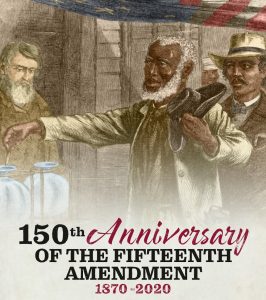 On the 150th anniversary of the 15th Amendment in 2020, we compiled this collection of resources. The Zinn Education Project partnered with Color of Change on a campaign to teach about voting rights — in history and today. As a result of that campaign, we offer the resources listed below, including a voting rights toolkit and a three-lesson voting rights unit.
On the 150th anniversary of the 15th Amendment in 2020, we compiled this collection of resources. The Zinn Education Project partnered with Color of Change on a campaign to teach about voting rights — in history and today. As a result of that campaign, we offer the resources listed below, including a voting rights toolkit and a three-lesson voting rights unit.
What is the 15th Amendment?
The 15th Amendment — the third and final amendment to the U.S. Constitution during the Reconstruction Era — was adopted to protect the freedoms outlined in the 13th and 14th Amendments.
“The right of citizens of the United States to vote shall not be denied or abridged by the United States or by any State on account of race, color, or previous condition of servitude.” (U.S. Constitution. Amendment XV, Section 1. 1870.)
In 1870, two years after the 14th Amendment was ratified, Congress and the states responded to another round of racial violence in the South by providing additional constitutional protection for the Black electorate. The 15th Amendment declared that the right of U.S. citizens to vote could “not be abridged or denied” by any state” on account of race, color, or previous condition of servitude.” The 14th and 15th Amendments — sporadically enforced until 1876 (the end of Reconstruction), then rarely enforced until 1954 (the Brown v. Board of Education school desegregation decision by the Supreme Court) — provided the legal foundation for the civil rights movement of the 1950s, 1960s, and 1970s. They are part of the enduring constitutional legacy of Reconstruction.
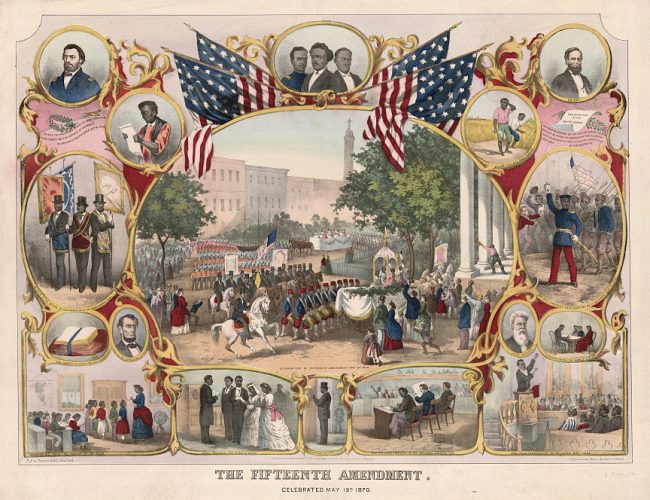
Depiction of advancements made in the U.S. during Reconstruction by Thomas Kelly, 1870. Source: Library of Congress.
In 1857, when Judge Roger Taney announced the Dred Scott decision and dismissed the very notion of legal and even human rights for African Americans, who could have imagined that in a little more than a decade the 13th, 14th, and 15th Amendments would change the U.S. Constitution? Radical Reconstruction did that and much more. With the passage of the Reconstruction Acts of 1867, Congress opened up new possibilities for U.S. democracy. Over the next nine years, African Americans, poor whites, and others rose to the democratic challenge in the South. [Excerpted from Freedom’s Unfinished Revolution: An Inquiry Into the Civil War and Reconstruction by the American Social History Project (pp. 211-212).]
This Day in History on the 15th Amendment
Feb. 3, 1870: 15th Amendment Ratified
March 30, 1870: 15th Amendment Adopted
Oct. 19, 1870: First African Americans Elected to the U.S. House of Representatives
Dec. 12, 1870: J. Rainey First African-American in the U.S. House of Representatives
Lessons, Student Readings, and Children’s/YA Books on Voting Rights and Reconstruction
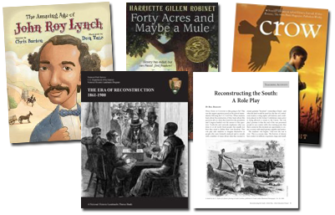
- Seneca Falls, 1848: Women Organize for Equality
- The Voting Rights Act: Ten Things You Should Know
- When the Impossible Suddenly Became Possible: A Reconstruction Mixer
- Reconstructing the South: A Role Play
- Recommended children’s and young adult books on Voting Rights and Reconstruction.
Film Clips
Facing History | The Reconstruction Era Video Series | Part Four: Interracial Democracy
Scholars discuss how African Americans and whites initially worked together within Reconstruction governments. Use the video shown here and refer to the teaching guides at Facing History.
Free State of Jones: Election Day
The 2016 film The Free State of Jones featured Black men voting during Reconstruction and the dangers they faced to exercise that hard-won right. See a tense reenactment of this history in the clip here and find out more about the film’s historical accuracy in the Smithsonian article, “The True Story of the ‘Free State of Jones’.”
HISTORY: The 15th Amendment, narrated by historian Yohuru Williams
This short clip with Dr. Yohuru Williams summarizes the history of Black voting rights from Reconstruction through the 1990s. It puts the 15th Amendment into the post-Civil War context and its legacy over the next 150 years.
15th Amendment and Voting Rights Primary Documents and Other Resources
 |
Library of Congress: 15th Amendment to the U.S. Constitution: Primary Documents in American History The Library of Congress provides access to digital collections, suggests external websites, and highlights print materials related to the 15th Amendment. |
 |
Library of Congress: Oral Histories of Voting in the mid-20th Century The Library of Congress offers oral histories related to Black voting rights through its Civil Rights History Project. Many of the interviewees were involved in voter registration drives, driving voters to the polls, teaching literacy classes for the purposes of voter registration, or encouraging local African Americans to run as candidates. |
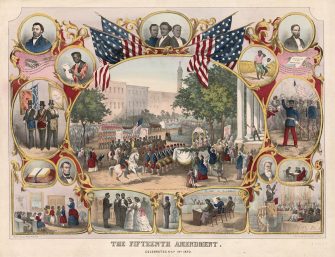 |
NARA: 15th Amendment to the U.S. Constitution: Voting Rights (1870) This government website features the National Archives and Records Administration’s online collection of documents and resources related to the 15th Amendment, including the original document signed by President Grant in 1870. |
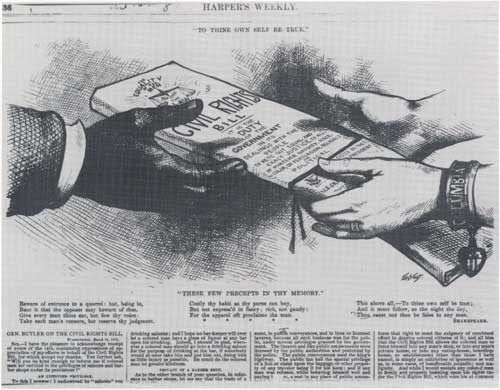 |
ACLU: Major Dates in History of The Voting Rights Act The American Civil Liberties Union hosts a timeline of important changes to federal law regarding voting rights, from the Reconstruction Era through 2013. The timeline includes events that led to or altered the Voting Rights Act of the 1960s. |
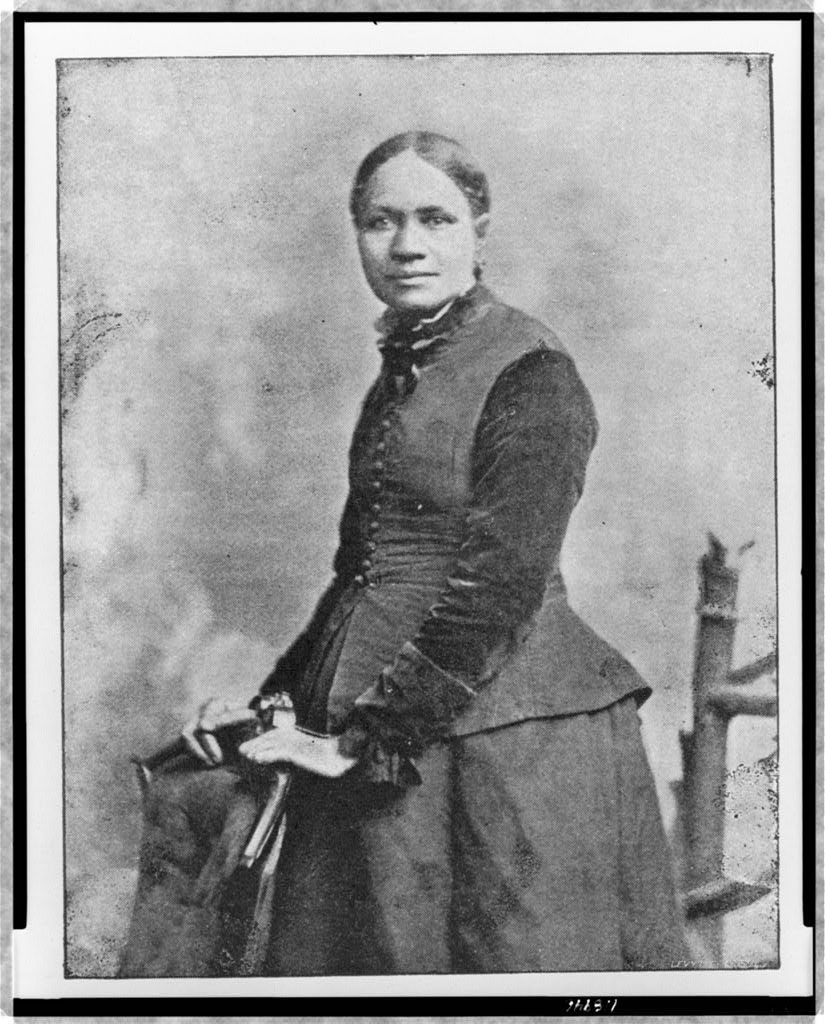 |
National Park Service: African American Women and the 19th Amendment A National Park Service article explores how and why Black women formed their own organizations for women’s suffrage, to continue their efforts to secure and protect the civil liberties of all men and women. |
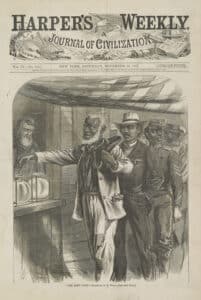 |
Harper’s Weekly: Black Voting Rights: The Creation of the 15th Amendment This website chronicles the creation and immediate impact of the 15th Amendment through primary source materials — editorials, cartoons, news briefs, illustrations — taken from the pages of Harper’s Weekly. In addition to the primary source material, it includes biographical sketches of related historical figures and a glossary of terms. |
 |
Voting Rights in America: Two Centuries of Struggle by Bruce Hartford This timeline from the Civil Rights Movement Archives describes a U.S. history of oppression, persecution, and discrimination in regards to voting rights. But in all of the events described here, those affected were not submissive or passive victims. Rather, they fought for their rights with whatever means they had. |
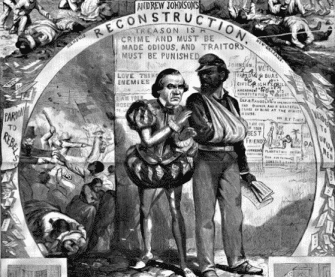 |
Facing History: Interracial Democracy During Reconstruction This lesson is part of Facing History’s collection, The Reconstruction Era and the Fragility of Democracy, an archive of lessons, videos, and primary sources. |
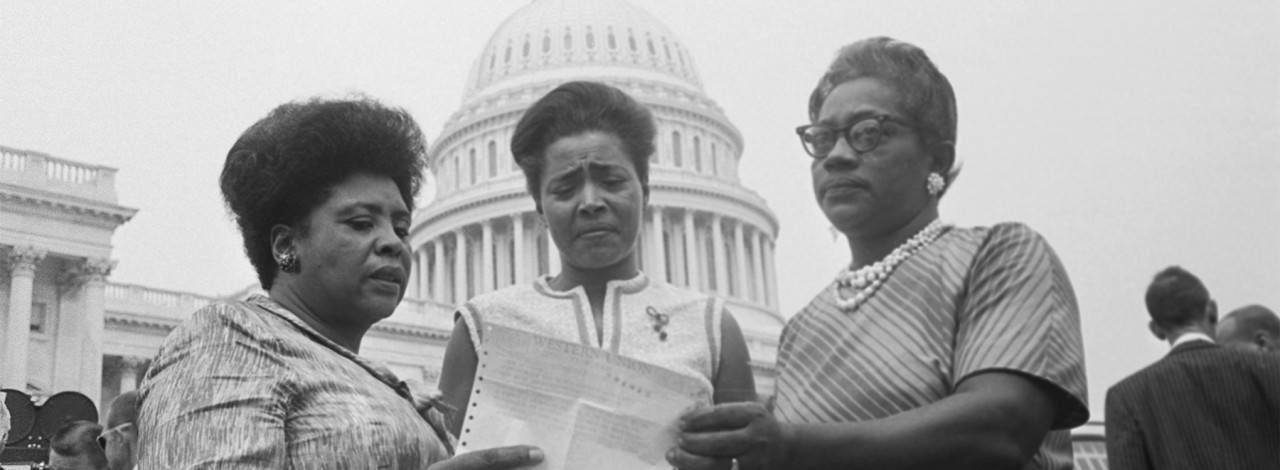 |
SPLC: Challenging the whitewashed history of women’s suffrage This article from the Southern Poverty Law Center outlines the challenges educators face when teaching the 19th Amendment. The short article offers alternatives to the white women’s narrative that can improve any voting rights curriculum by including the history of Black suffragists. |
Articles and Books for Educators
Articles
“The Equality That Wasn’t Enough: The most radical Radical Republicans had a better idea of how to cast the 15th Amendment. We should have listened to them” in The New York Times, by Jamelle Bouie. This article highlights the debate and long term implications over the wording of the 15th Amendment.
“The 15th Amendment Was Ratified 150 Years Ago, but the Fight to Protect Black Voters Continues” in Teen Vogue, by Jameelah Nasheed.
“What everyone should know about Reconstruction 150 years after the 15th Amendment’s ratification” in The Conversation, by Dr. Tiffany Mitchell Patterson.
“There Have Been 10 Black Senators Since Emancipation: Elected 150 years ago, Hiram Revels was the first” in The New York Times, by Eric Foner.
“The Promise and Pitfalls of the 15th Amendment Over 150 Years” in Analysis & Opinion at the Brennon Center, by Alex Cohen and Wilfred Codrington.
Books
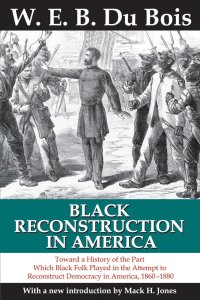 The Second Founding How the Civil War & Reconstruction Remade the Constitution by Eric Foner
The Second Founding How the Civil War & Reconstruction Remade the Constitution by Eric Foner
Black Reconstruction in America by W. E. B. Du Bois.
The Era of Reconstruction, 1861-1900: National Historic Landmarks Theme Study by the National Park Service
Find more books about Reconstruction for all reading levels.
Podcast and Tweets
Remember, 3/4 of the states must ratify an amendment to make it part of the Constitution.
Back in 1870, that meant 28 yes votes.
Today, Feb 3 is recognized as the day Iowa became the 28th state to approve the 15A.
Except that was basically a fluke of the paperwork.
— Stephen West (@Stephen_A_West) February 3, 2020
“When Black Men Won the Vote” on the HISTORY This Week podcast, a conversation and interview featuring historian and professor Yohuru Williams about the 15th Amendment and Reconstruction.
Scroll down to see more Teach Reconstruction and voting rights resources available on ZinnEdProject.org.

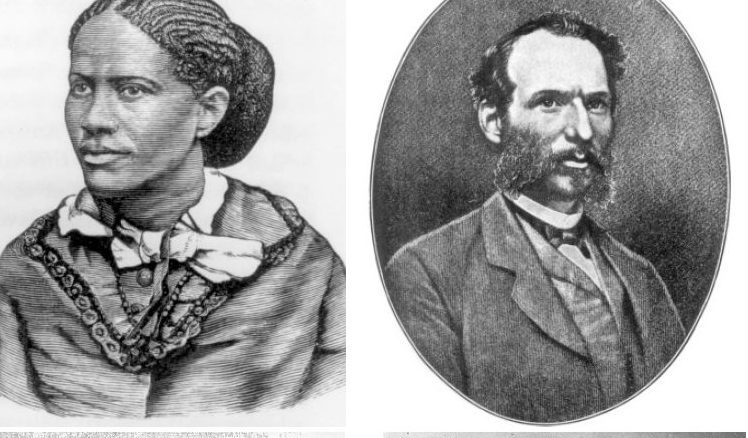
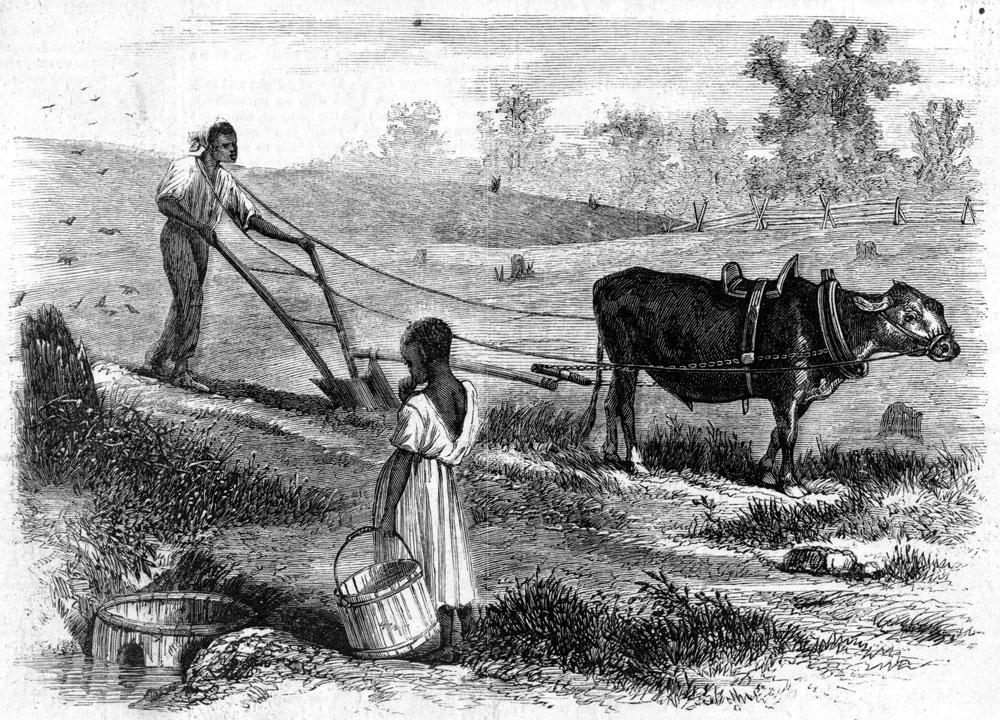
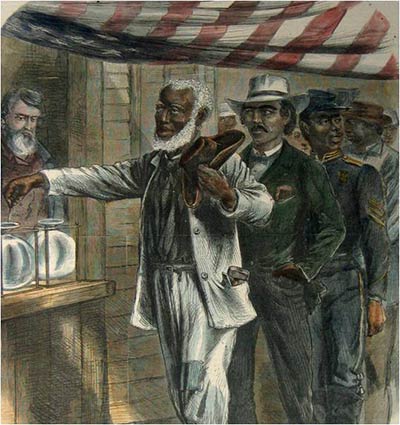
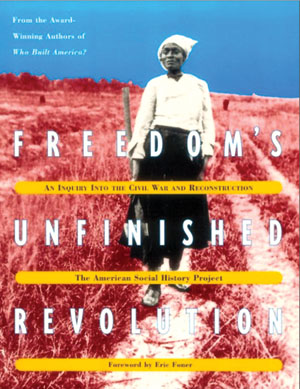
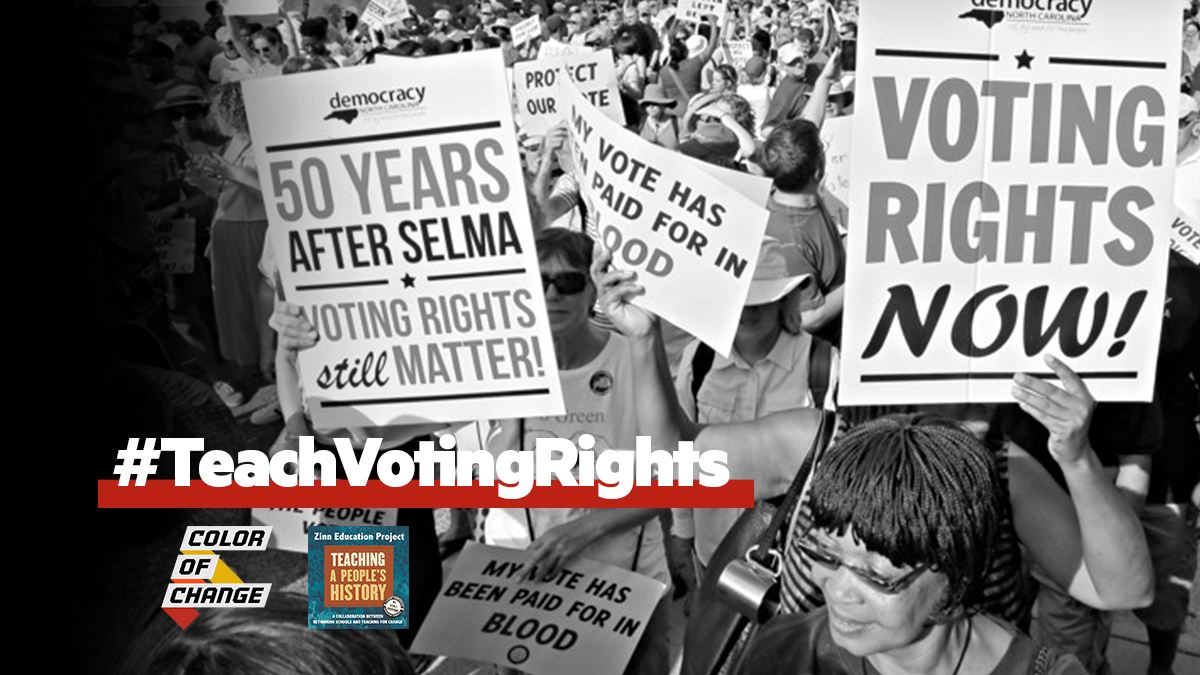
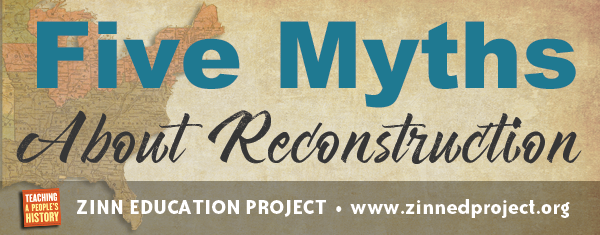
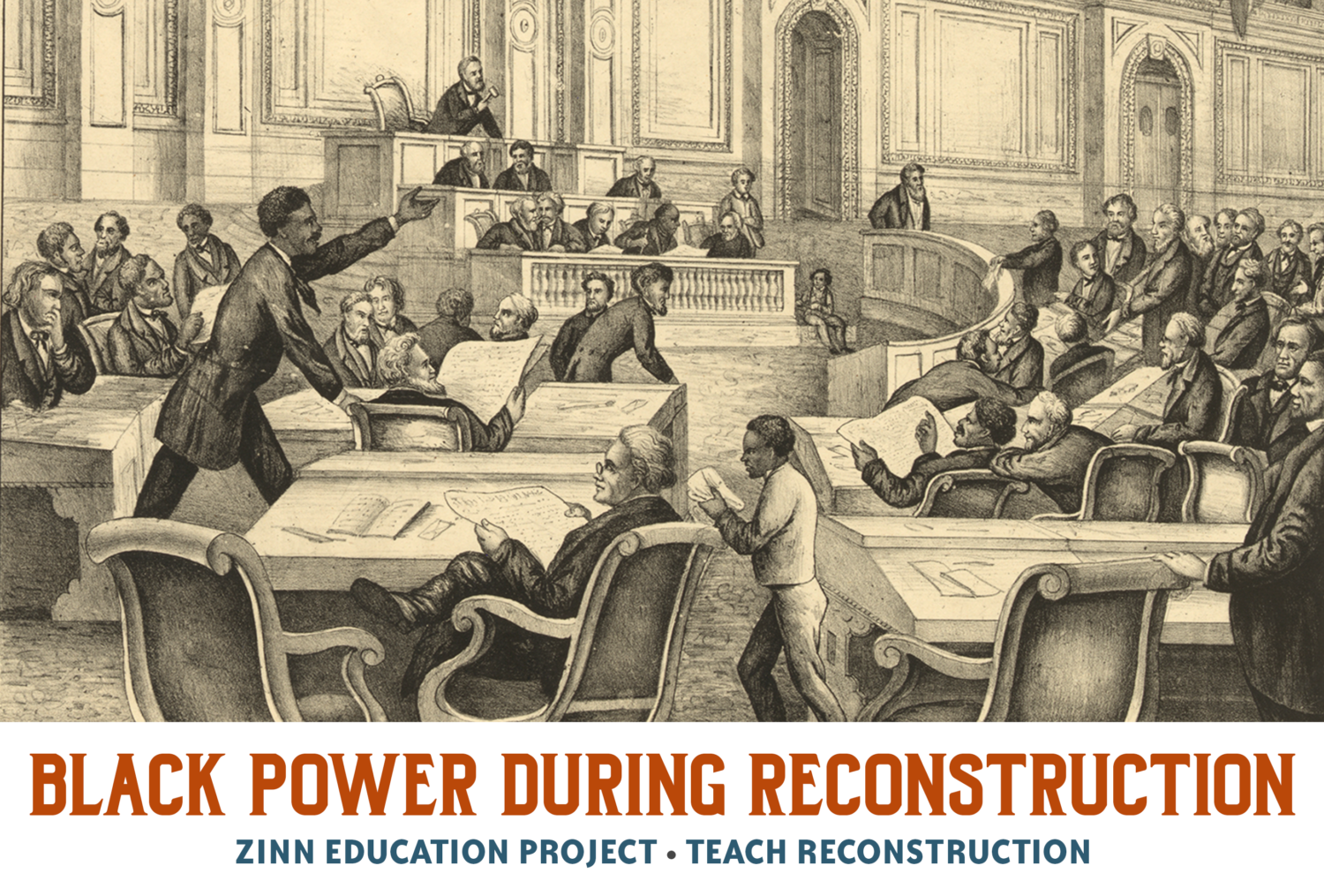
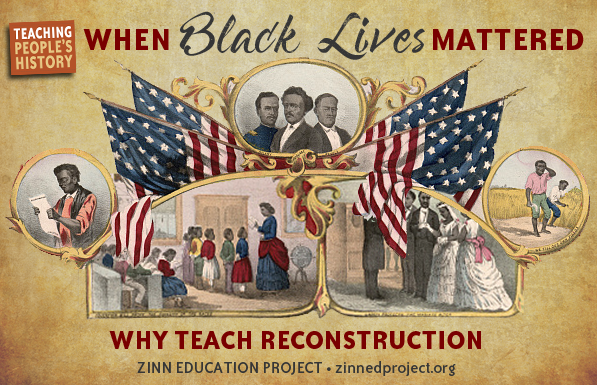
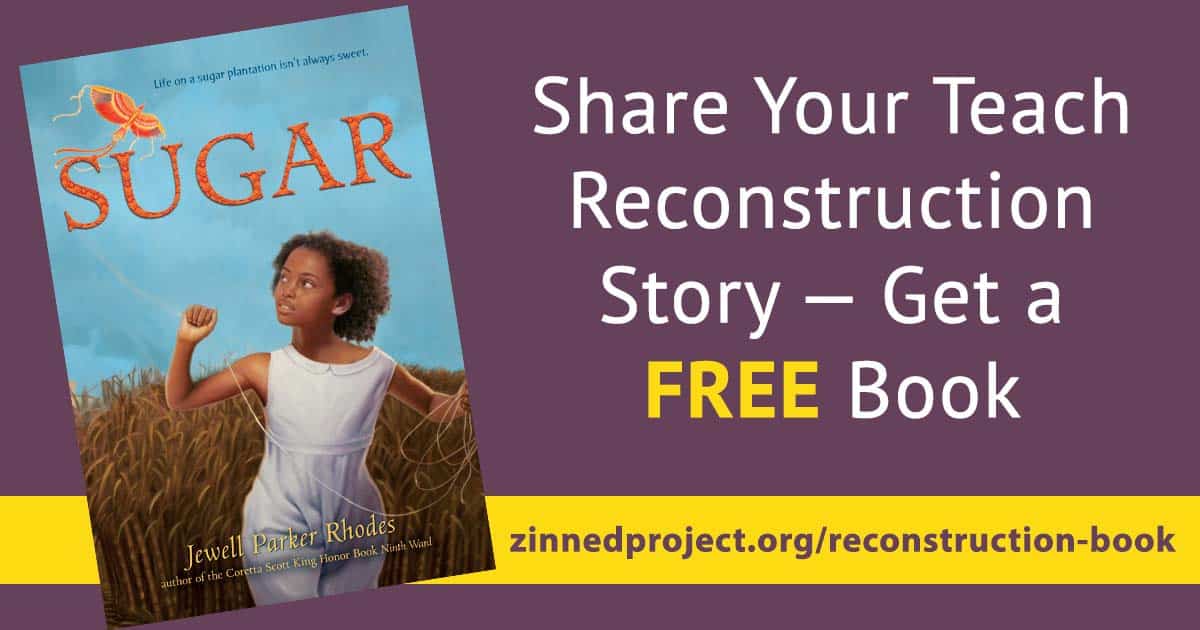
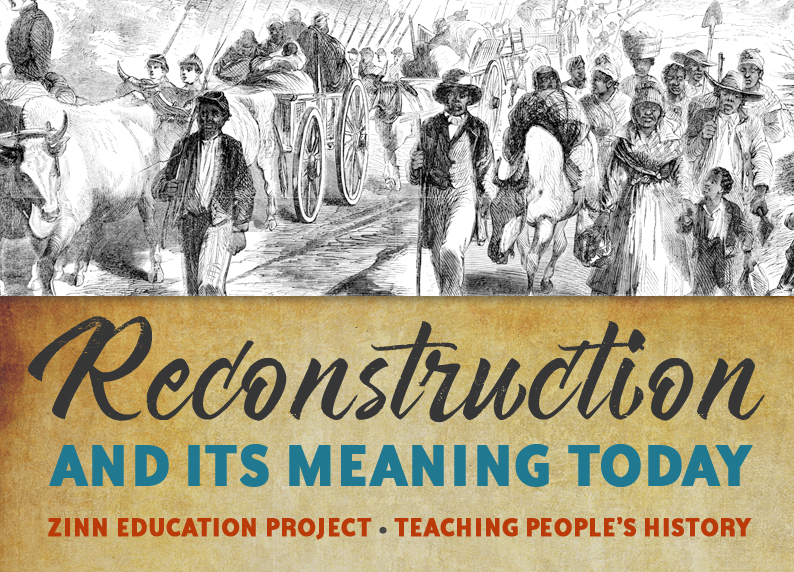






Twitter
Google plus
LinkedIn